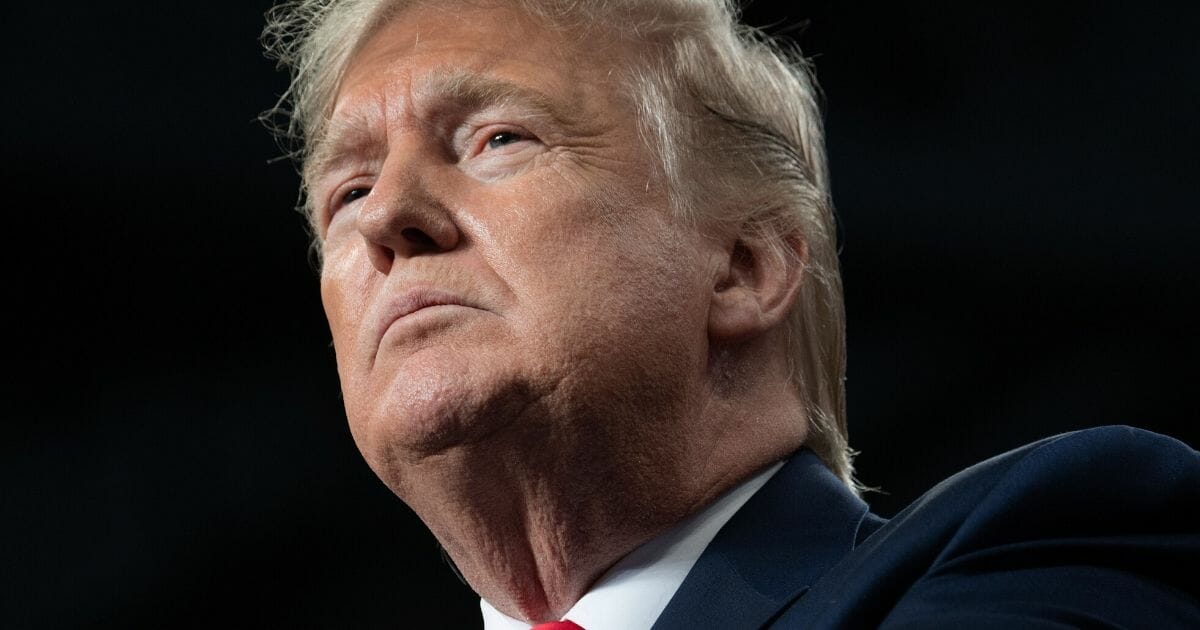
White House Considering a Dramatic Expansion of the Travel Ban List
The White House is considering dramatically expanding its travel ban to additional countries, according to six people familiar with the deliberations.
A document outlining the plans — timed to coincide with the third anniversary of President Donald Trump’s January 2017 executive order — has been circulating the White House.
However, the countries that would be affected are blacked out, according to two of the people, who spoke to The Associated Press on condition of anonymity because the measure has yet to be finalized.
The 2017 executive order was intended to “protect the American people from terrorist attacks by foreign nationals” allowed into the country.
“In order to protect Americans, the United States must ensure that those admitted to this country do not bear hostile attitudes toward it and its founding principles,” the order said. “The United States cannot, and should not, admit those who do not support the Constitution, or those who would place violent ideologies over American law.”
It’s unclear exactly how many countries would be included in the expansion, but two of the people said that seven countries would be added to the list.
The most recent iteration of the ban includes restrictions on five majority-Muslim nations — Iran, Libya, Somalia, Syria and Yemen — as well as Venezuela and North Korea.
A different person said the expansion could focus on several countries that were included when Trump announced the first iteration of the ban but later removed amid rounds of contentious litigation.
Iraq, Sudan and Chad, for instance, had originally been affected by the order, which the Supreme Court upheld in a 5-4 vote after the administration released a watered-down version intended to withstand legal scrutiny.
The White House did not immediately respond to questions about the effort, which several of the people said was timed for release in conjunction with the third anniversary of Trump’s first travel ban. That order sparked an uproar when it was announced on Jan. 27, 2017, with massive protests across the nation and chaos at airports where passengers were detained.
The latest deliberations come as House Speaker Nancy Pelosi, after weeks of delay, prepares to transmit to the Senate the articles of impeachment the Democratic-led House passed against Trump late last year, launching a formal impeachment trial just as the 2020 election year gets underway.
Trump ran his 2016 campaign promising to crack down on illegal immigration and spent much of his first term fighting lawsuits trying to halt his push to build a wall along the southern border, prohibit the entry of citizens from several majority-Muslim countries and impede masses of migrants seeking asylum in the U.S., amid other measures.
He is expected to press those efforts again this year amid his re-election campaign.
This week, a coalition of leading civil rights organizations urged House leaders to take up the No Ban Act, legislation to end Trump’s travel ban and prevent a new one.
The bill, introduced last year by Rep. Judy Chu, D-Calif., and Sen. Chris Coons, D-Del., would impose limits on the president’s ability to restrict entry to the U.S. It would require the administration to spell out its reasons for the restrictions and specifically prohibit religious discrimination.
Trump’s revised ban eliminated some of the original’s most contentious provisions, including making clear that those who held visas at the time of the signing could continue to enter the country.
The Western Journal has reviewed this Associated Press story and may have altered it prior to publication to ensure that it meets our editorial standards.
Truth and Accuracy
We are committed to truth and accuracy in all of our journalism. Read our editorial standards.
Advertise with The Western Journal and reach millions of highly engaged readers, while supporting our work. Advertise Today.












